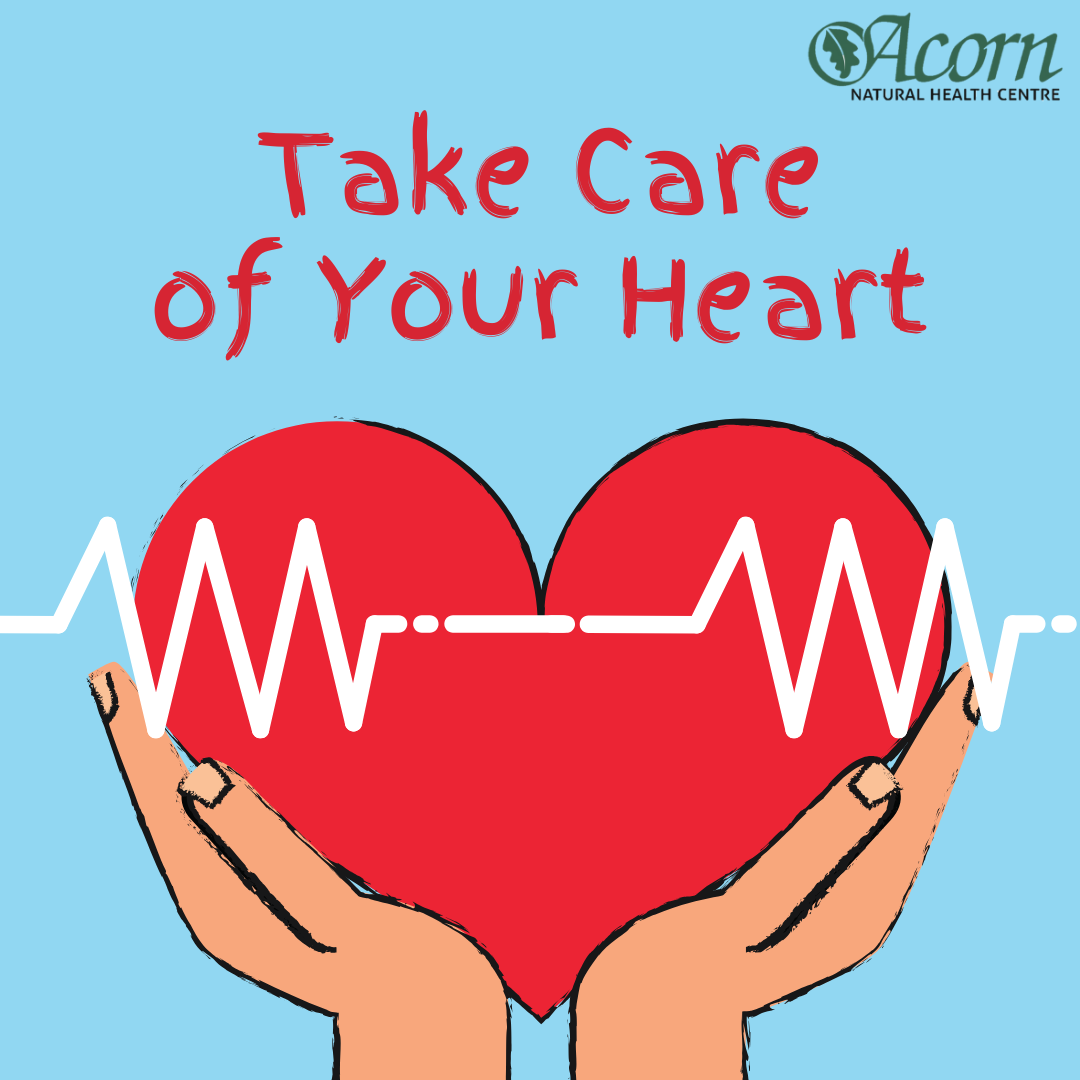When we think about heart health, our minds often go straight to physical aspects: blood pressure, cholesterol levels, and exercise. But the heart is so much more than a pump—it’s the emotional and energetic center of your being. At Acorn Natural Health, we believe that a truly healthy heart requires attention to the body, mind, and spirit. In this blog, we’ll explore how small, intentional practices can nourish your heart on every level.

The Link Between Emotions and Heart Health
Did you know that your emotions can have a direct impact on your physical heart? Science shows us that chronic stress, unresolved trauma, and prolonged negative emotions like anxiety and anger can lead to physical changes in the heart, including increased blood pressure and inflammation. This connection is often referred to as the “heart-mind connection.”
The Stress Factor
When you experience stress, your body releases cortisol and adrenaline—stress hormones that prepare you for “fight or flight.” While this response is useful in short bursts, prolonged stress keeps your heart working overtime. Over time, this can lead to high blood pressure, an increased risk of heart disease, and even heart rhythm irregularities.
The Role of Joy and Connection
On the flip side, positive emotions like joy, love, and gratitude can actually improve heart health. Studies show that practices like gratitude journaling and spending quality time with loved ones can lower cortisol levels, reduce inflammation, and even improve heart rate variability—a key indicator of a healthy heart.
Holistic Practices for a Healthy Heart
Nurturing your heart holistically means addressing its needs on all levels. Here are some simple but effective ways to care for your heart:
1. Feed Your Heart with Nourishing Foods
What you eat plays a critical role in your heart’s health. Foods rich in antioxidants, healthy fats, and fibre support your cardiovascular system while reducing inflammation.
- Leafy Greens: Kale, spinach, and Swiss chard are packed with heart-healthy nutrients like magnesium and potassium.
- Healthy Fats: Omega-3 fatty acids in salmon, walnuts, and chia seeds help lower bad cholesterol and reduce inflammation.
- Dark Chocolate: Yes, you read that right! Dark chocolate (with 70% or more cacao) contains flavonoids that may improve circulation and reduce blood pressure.
2. Breathe for Your Heart
Breathing exercises are a simple yet powerful way to calm your mind and reduce stress on your heart. Deep belly breathing or practicing the 4-7-8 technique (inhale for 4 counts, hold for 7, exhale for 8) activates your parasympathetic nervous system, which slows your heart rate and promotes relaxation.
3. Move with Intention
Exercise is essential for heart health, but it doesn’t have to mean hours at the gym. Gentle, mindful movement like yoga, walking in nature, or dancing can strengthen your heart while also nourishing your mind and spirit. Aim for at least 30 minutes of moderate movement most days of the week.
4. Heal Emotional Wounds
Unresolved emotional pain can weigh heavily on the heart. Counselling is a wonderful tool to help you process emotions, gain clarity, and find healing. It offers a safe, supportive space to explore how past experiences may be affecting your current well-being, empowering you to move forward with greater peace and resilience.
The Heart in Traditional Chinese Medicine (TCM)
In TCM, the heart is seen as the emperor of all organs. It’s not only responsible for circulating blood but also for housing the Shen—the spirit or mind. When your heart is balanced, you feel calm, joyful, and connected. But when it’s out of balance, you may experience anxiety, insomnia, or even physical symptoms like palpitations.
To bring harmony to your heart in the TCM tradition, consider practices like:
- Qi Gong: This ancient practice combines movement, breathwork, and meditation to balance your energy flow.
- Acupressure: Applying gentle pressure to points on the heart meridian can help promote relaxation and emotional balance.
- Herbal Support: Herbs like Reishi (Ganoderma), Albizia (also known as “the tree of happiness”), and Hawthorn berries are traditionally used to calm the Shen and support cardiovascular health.
The Power of Gratitude and Connection
A holistic approach to heart health isn’t complete without looking at your relationships—both with yourself and others. Feeling connected to loved ones, practicing kindness, and fostering a sense of community all have profound effects on your emotional and physical heart.
Simple Ways to Cultivate Connection:
- Gratitude Journaling: Write down three things you’re grateful for each day to shift your focus toward positivity.
- Heart-Centered Meditation: Visualize your heart filling with light, warmth, and love as you breathe deeply.
- Quality Time: Prioritize moments with friends and family that bring you joy and connection.
These small acts not only nurture your emotional well-being but also create ripple effects that positively influence your physical heart.
Take Heart: Small Changes Lead to Big Results
Caring for your heart doesn’t have to mean a complete lifestyle overhaul. By taking small, intentional steps—like eating nourishing foods, moving with joy, and fostering emotional balance—you can create a heart-healthy routine that feels sustainable and enjoyable.
This February, let’s honor our hearts—not just as organs, but as the beautiful, complex centers of our emotional, physical, and spiritual lives.
Start small. Breathe deeply. Move joyfully. And most importantly, love yourself fully. 💖

